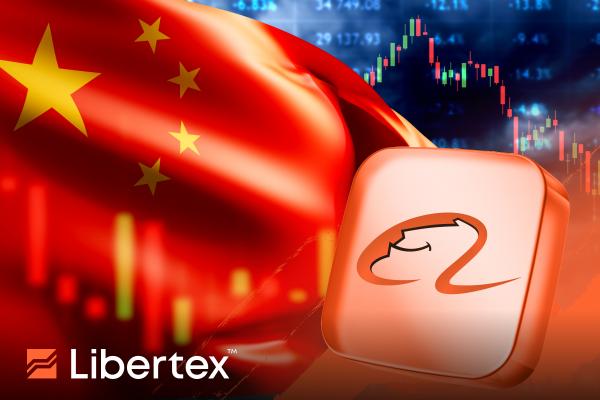For anyone holding Chinese stocks, the past few years have been quite the rollercoaster ride. From the US crackdowns on American depositary receipts (ADRs) to internal Chinese antitrust action against the country's tech giants, equities in the world's second-biggest economy have been under constant pressure.
As a fast-growing market with low correlation with the US and Europe, Chinese stocks were initially seen as a key asset class for risk-tolerant investors looking to diversify and maximise gains over time, but while other markets have enjoyed envious bull runs over the past 3-4 years, China's household tech names have endured a seemingly endless grind lower, followed by a period of post-COVID stagnation.
To put things into perspective, while Amazon has more than doubled in value since the start of 2023, Alibaba was at the exact same level on 17 April 2024 as it was in November 2022. It's a similar story for Tencent Holding and Baidu, which have barely managed to record 10% growth over the same period. But there finally appears to be some light at the end of the tunnel following welcome news from the China Securities Regulatory Commission that a wave of delistings will not be forthcoming. So, does this mean that now's the time to get back into China, and what are the factors that will drive or stunt growth in the rest of 2024?
Regulating fear
As is typically the case, the markets' fear of the implications of new regulation appears to have been exaggerated. This was then amplified further by the relative opacity and unpredictability of the Chinese regulatory environment. In the draft rules released on 12 April, the China Securities Regulatory Commission (CSRC) committed to raising the bar for initial public offerings, forcing unqualified companies to delist and enhancing its oversight of high-frequency trading. This led to a two-day sell-off that saw the market shed almost 10% of its value.
Now, however, the regulator has clarified that the new rules won't, in fact, lead to mass delistings but rather simply weed out "zombie shell companies" and bad actors, ultimately leading to a more transparent market framework and sustainable financial environment.
With precisely such concerns scaring many foreign investors out of Chinese equities, the new legislation could lead to a sustained inflow of international capital over time. The impact of the US's attack on ADRs has already been neutralised by equivalent listings by many affected firms on Hong Kong's Hang Seng. On top of that, given that the effect of last year's amendments to the CCP's Anti-Monopoly Law (AML) has already been baked into prices, the path to growth appears to be clear at last.
Unbeatable value
It's no secret that China's big tech stocks are available at unfathomably attractive prices. This is unsurprising following four years of steady declines. We've already touched upon the fact that Alibaba, Tencent, and Baidu have failed to register any significant growth in the past 18 months, but this is only half of the story.
Let's take Alibaba as an example. The global e-commerce titan is currently trading at an eight-year low of US$69.61 (HK$68), and with a PE ratio of 12.97, it is a veritable steal for a growth stock. At $HK300.80, Tencent similarly hasn't been lower in over six years and represents a 50% discount on its recent ATH. As for Baidu, its share price hasn't been this low (HK$93.10) in more than a decade, and its P/E ratio of 12.47 is almost as low as ultra-safe US value stocks like Wells Fargo and Bank of America.
When we take into account the fact that these companies have arms focusing on hot, scalable sectors like fintech, cloud computing and AI — all in a domestic market of almost 1.5 billion people — it's clear that hyperbolic levels of fear and mistrust are what have kept their share prices artificially low all this time. With evidence to suggest that a combination of new regulation and increased openness from the Chinese authorities could remove many of these investor barriers, we could look back on these opportunities in the same vein as Amazon and Apple stocks after the dot-com bubble.
Trade CFDs with Libertex
Libertex offers CFDs on a wide range of underlying assets, including Chinese and US stocks, commodities, forex, and crypto. The Libertex platform gives you the ability to open long or short positions in stock CFDs, such as Alibaba, Tencent, and Baidu, as well as ETFs like the iShares China Large Cap index. For more information or to create an account of your own, visit www.libertex.com/signup today.


